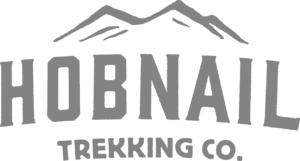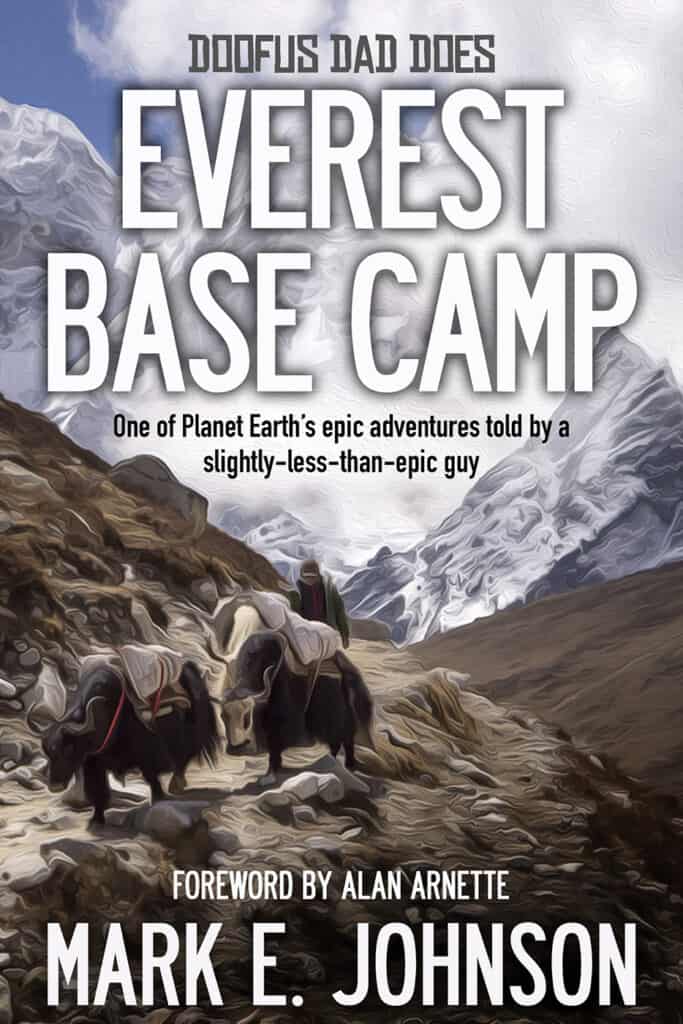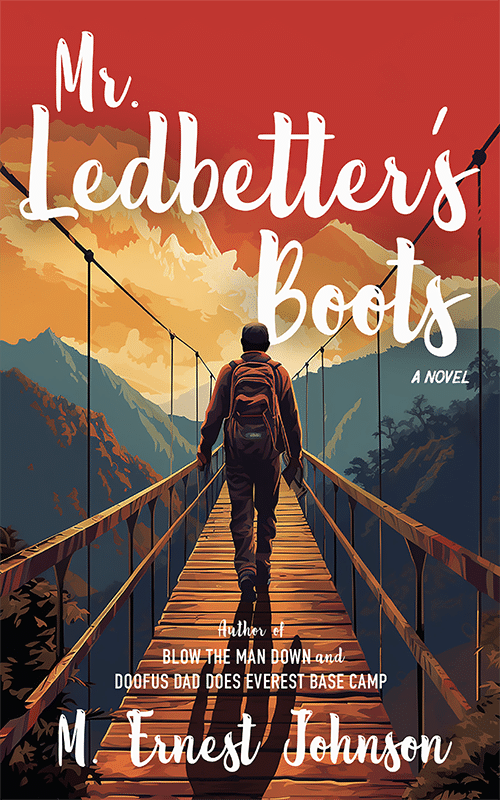When you’re trekking in the great outdoors, rain isn’t a question of if—it’s a question of when and how much. Whether you’re trudging through the misty Scottish Highlands, dodging downpours in the Andes, or braving a Himalayan storm, having the right rain shell can mean the difference between staying dry or turning into a soggy, shivering mess. Clearly, when you’re hiking with Hobnail, we want you to be comfortable and happy all the time, even in the rain, so we’re here to help. Here’s are the top 5 things to keep front of mind when picking out a rain shell:
1. Waterproof Is Not the Same as Water-Resistant (Know the Difference!)
That $30 “water-resistant” jacket might keep you dry during a light drizzle on your morning dog walk, but it’s going to betray you the moment you step onto a serious trail. For trekking, you need a fully waterproof shell, meaning it has sealed seams, a waterproof membrane (like Gore-Tex or eVent), and won’t quit on you when the skies open up.
2. Breathability Matters—Unless You Enjoy Feeling Like a Boiled Potato
A rain shell that keeps water out but also traps all your body heat inside? Congratulations, you just created your own personal sauna. The best trekking shells are both waterproof and breathable, allowing sweat to escape so you don’t feel like you’re hiking in a plastic bag. Look for materials like Gore-Tex Active, Polartec NeoShell, or eVent for that perfect balance.
3. Packability: Bulky Jackets Are the Worst
You don’t want a jacket that takes up half your backpack. The best trekking rain shells are lightweight and packable, stuffing down small enough to fit in your daypack when the sun comes out. Some models even pack into their own pockets, making them super easy to stash and grab when needed.
4. Hood Design: Not All Hoods Are Created Equal
A poorly designed hood will either block your peripheral vision (hello, awkward stumbles) or do absolutely nothing to keep rain out of your face. Look for adjustable, helmet-compatible hoods with stiff brims that keep rain from dripping onto your nose. Bonus points if it has a high collar for extra face protection in sideways rain.
5. Zippers, Pit Vents, and the Little Details That Matter
A good rain shell is all about the small things:
✅ Waterproof zippers (because a jacket that leaks through the zipper is useless)
✅ Pit zips (underarm vents) to dump heat when you’re working hard
✅ Adjustable cuffs and hem to keep water from sneaking in
✅ Pockets in the right places (so you don’t have to unbuckle your pack to reach them)
BONUS TIP: In most of the high-altitude places you go trekking, your rain shell over a good fleece jacket will be more useful than a puffy down jacket. Don’t skimp — get a good rain shell. Here are a few winners to consider. (And no, we’re not getting any affiliate kickbacks for this…)
Best Overall: 🏆
Arc’teryx Beta LT – $400-$500
- Gore-Tex Pro for top-tier waterproofing
- Super lightweight (13.9 oz)
- Amazing breathability for high-output trekking
Best Budget Option: 💰
Outdoor Research Helium Rain Jacket – $150-$200
- Packs down super small (6.3 oz!)
- Great for ultralight trekking
- Not the most durable but solid for occasional rain
Best for Extreme Conditions: 🌪️
Rab Latok Alpine GTX – $400-$500
- Hardcore Gore-Tex Pro 3-layer
- Bomber durability for nasty weather
- A bit heavier but built for real storms
Best for Breathability: 🌬️
Patagonia Storm10 – $275-$325
- 3-layer H2No Performance Standard (Patagonia’s waterproof tech)
- Ultra-breathable and light (8.3 oz)
- Packs into its own pocket for easy storage
Best for Comfort & Fit: 🎯
Black Diamond StormLine Stretch – $150-$200
- Stretchy fabric for better movement
- 2.5-layer waterproofing keeps it light
- Great for active trekking but not for torrential downpours
These prices will vary depending on sales, older models, and where you buy them, but this should give you a solid idea of what to expect. Hope this helps! 💧🏔️





Recent Comments